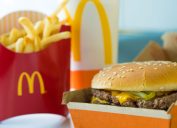12 Proven Ways to Stop Feeling Hungry
These expert and science-endorsed tips will help you eat less.

One of the critical components of losing weight is to eat less. However, many people struggle to stave off hunger. You might not know that reducing your appetite is easier than you think, and many science-based methods can help you do it. Check out these twelve tips to help you feel more satisfied throughout the day and curb your hunger.

Pauline Cox, MSc, is a functional nutritionist and author of Hungry Woman – Eating for Good Health, Happiness and Hormones, tells the Telegraph that you should avoid processed or sugar foods that “cause a sharp rise in blood sugars and dopamine” that make them far more addictive. “Managing our blood-sugar spikes can help to reduce the impact sugar has on our body, which is key for better brain function and appetite regulation,” she says.
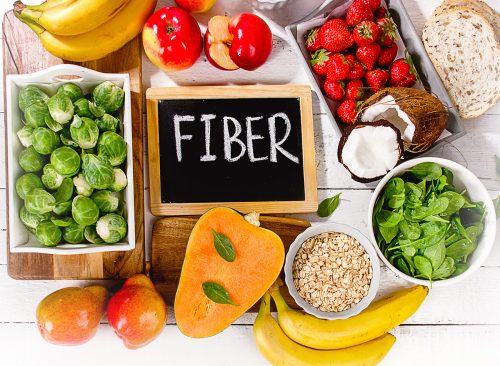
Cox also suggests eating high-fiber foods along with those with a higher glycaemic index, or sugar load, as it will lower the impact on our blood sugars. “A large salad with your pizza reduces the blood-sugar spike from the pizza. Eating your dessert immediately after a fiber-packed lunch will lower the blood-sugar impact of the dessert,” she explains.
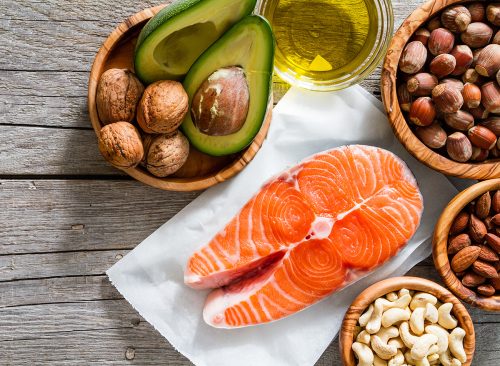
“Sugar-sensing neuropod cells in the gut also respond to essential fatty acids,” explains Cox. Omega-3 fatty acids supplementation can release dopamine via the neuropods in the gut, “helping to reduce sugar cravings. This can be achieved by the EPA fatty acids in oily fish, such as salmon and sardines, fish oil supplements, or for vegans and vegetarians, via a plant-based source called ahiflower.”
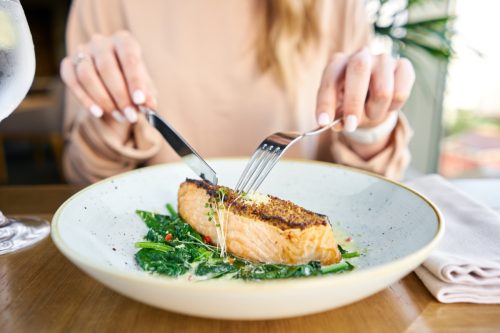
Cox also notes that increasing amino-acid intake can also reduce cravings through stimulating dopamine production via protein such as fish, chicken, eggs, and cheese.

Cox explains that the quality and length of sleep have an impact on our sugar cravings. “An increase of 15 percent in our hunger hormone and a reduction of 15 percent in our satiety hormone is seen with poor sleep. Aiming for seven hours of good-quality sleep can reduce cravings and overeating,” she says.

According to studies, drinking water might suppress hunger and promote weight loss for some people. Thirst can actually be confused with hunger. One small human study even found that people who drank two glasses of water immediately before a meal ate 22% less than those who didn’t.

Science has also found that drinking low-calorie liquids or having a cup of broth-based soup before a meal may result in you eating less to the tune of about 100 calories. Umami flavor soups tend to be the most satiating.

Not all calories are created equal when it comes to helping you feel less hungry. For example, science has found that sold food are more effective in reducing hunger over thin and liquid foods. One of the reasons is that chewing food offers more time for the fullness signal to reach the brain.
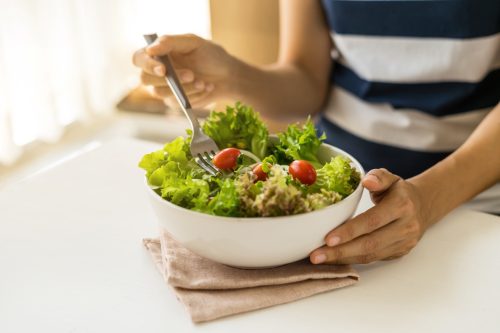
Practicing mindful eating can help prevent overeating. For example, don’t eat while you are distracted, and try only to eat when you are hungry, not just because it is breakfast, lunch, or dinner.

Eating quickly often results in overeating. According to one study, people who ate faster took bigger bites and ate more calories overall. Science has found that eating slowly is more satiating.

It’s not just your imagination: When you exercise, you are likely going to eat less. There is plenty of scientific evidence backing this up. Not only does movement reduce the activation of areas in the brain linked to food cravings, but some research shows that aerobic and resistance exercise influence hormone levels and meal size after exercise.
RELATED: Surprising Signs You’ve Already Had COVID
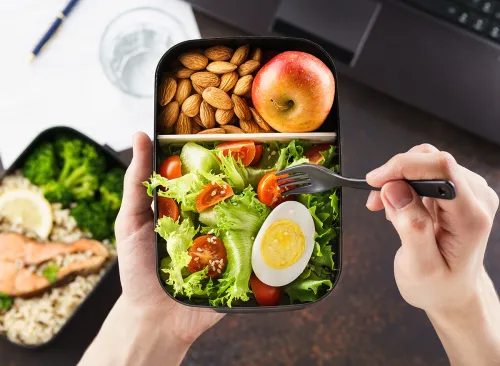
One creative but scientifically proven hack to eat less is by reducing the size of your plates and bowls. When you eat off bigger dinnerware, you are likely to eat more without knowing it.

